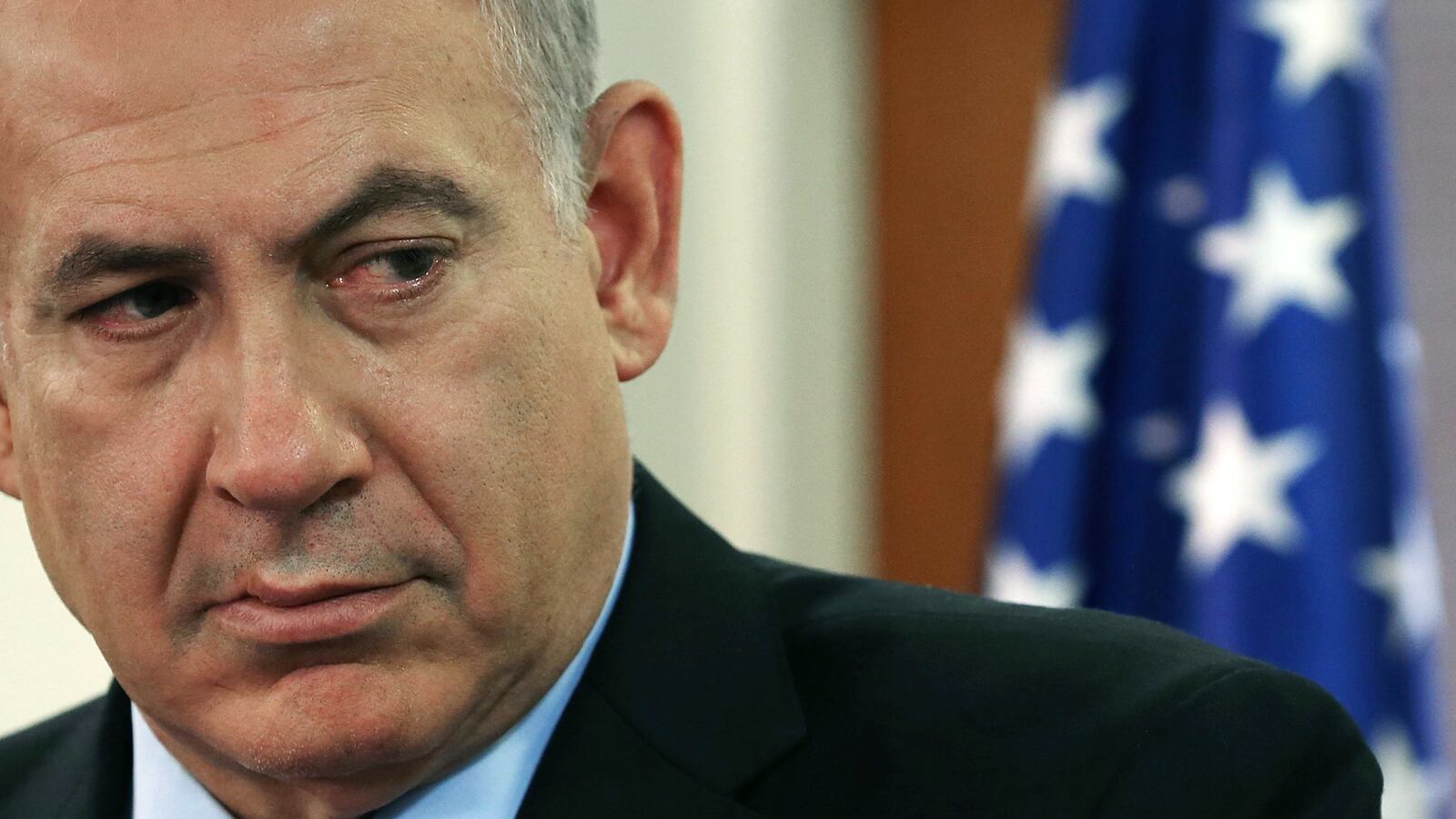Just about everything that could go wrong for Benjamin Netanyahu during this election season has gone wrong. The biggest pre-election issue, Haredi sponging and shirking of military service, was captured by Yair Lapid. Two summers after the "social justice" demonstrations, the budget deficit ballooned to double what had been predicted—and makes new regressive, indirect taxes inevitable. Netanyahu's party primaries denied him centrist window-dressing (i.e., Dan Meridor). Arye Deri has retuned to Shas and is disparaging Likud, which once counted on poor Mizrahim, as the party of the rich and the Russians. Shelly Yacimovitch, a Labor leader, is walking thorough Mahane Yehuda, the Mizrahi market in Jerusalem, and coming out alive.

Likud amalgamated with Lieberman and Lieberman was indicted. Netanyahu's old chief of staff (not Lieberman, in this case, but Bennett) started a ultra party of his own that's outflanked Netanyahu to the right and will probably attract the very base of voters that determined Likud's list. Ehud Barak, Netanyahu's best link to the Pentagon and American media, retired. Worst of all, Netanyahu's new pal, Mitt Romney, lost badly; Hagel is on the way, and Obama is no longer hiding his disdain for Netanyahu or his special American Jewish friends. European leaders even more obviously condescend to him and Angela Merkel is not longer holding back about settlements. Abbas has got what he wanted from the U.N., Hamas got what it wanted from Morsi—in both cases, Netanyahu seems a man without a plan. And as Willy Loman would have said, Netanyahu was always liked but not well-liked.
The big things that did not go wrong for Netanyahu may be enough to reelect him. They are, first, the inertia of the Greater Israel "consensus," that is, the defense of the status quo he has been peddling for the past four years, and, second, the fragmentation of his Global Israel opposition, the major leaders of which, Yacimovitch, Lapid, Livni, Meretz and Mofaz (viz., Olmert) seem unable to combine effectively for reasons that will someday seem absurdly trivial.
But with less than 24 hours to the opening of the polls, it seems worth noting again that a great many undecided voters will be heard from tomorrow. They could determine a swing of the five or so seats that polls say are all that are needed to even up the blocs in the Knesset. And the most ideological right-wingers tend to make up their minds early. The consensus is just fatuous enough, and only-skin-deep enough, to be jettisoned by voters looking to try something new, right and left.
Besides, undecided voters, as in the U.S., tend to be influenced by flocking behavior, the conviction that a vote should not make you look stupid to friends and family. And so you vote for the person you are not afraid to admit you voted for in the end—the person who just might make you look "b'cool." In this sense the fragmentation of the opposition could also work against Netanyahu. Yes, there is no big alignment to oppose him, or major figure who seems prime ministerial. But there are many niche players to cut into his bloc. Lapid is rising especially fast.
Rational beings assume Netanyahu will win: all the pollsters have been conditioning this response for months. And political predictions, as Karl Rove inadvertently proved, are one-half information, one-quarter dread, and one-quarter wishful thinking. Still, my nose tells me there is something in the air that will change Israeli politics, if not tomorrow, then soon enough.
Olmert, for one, is assuming any Netanyahu government, if formed, will fall within a couple of years. The latter, Olmert has been telling his friends, will have to make big financial promises to Shas, Haredim, Lieberman, and the settlers (i.e., Bennett) to get the leverage he needs to invite centrists like Lapid (and, if he makes it, Mofaz) into the government without being utterly dependent on them.
Even if Lapid is prepared to disappoint his Rothschild Blvd. voters and join such a crew, what happens when Lapid starts expecting pay-back, say, a new military service law, or cut-backs to special Shas subsidies for their nurseries? What happens when Obama begins pressing harder on settlements? Where will the money come for new housing inside the Green Line, Lapid's most concrete promise?
And what happens to a new Netanyahu government if Lapid gets smart, stays out, and negotiates a big, alternative opposition alignement? What if Obama does indeed press Israel into new peace talks? Any talk about a compromise on Jerusalem becoming a part of the package, and Shas and Bennett bolt, as with Netanyahu's first government in the 1990s. But any talk about Jerusalem not being part of the package, and Abbas will (continue to) have nothing to do with the negotiations.
Meanwhile, with or without Lapid, the opposition will finally have the opportunity to coalesce into a common front. Perhaps, finally, we will get a kind of Israeli Democratic Party, with room for Arabs, too. And Olmert may himself have court proceedings behind him. As I said, dread and wishful thinking. Stay tuned.






